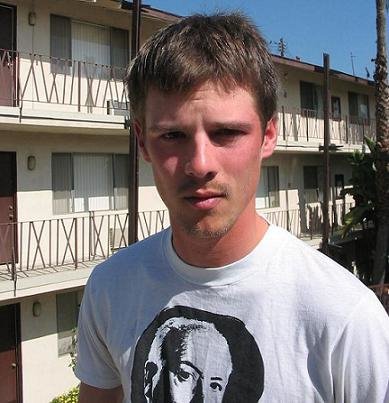Once Upon a Time
Once Upon a Time
I got to see Once Upon a Time in the West at the Egyptian Theater a few days ago, and it was certainly an interesting experience. For those that don't know, the Egyptian Theater is the home of The American Cinematheque, a kind of film preservation and appreciation society. They don't just play elitist classics like Once Upon a Time, but they also play cult classics like Godzilla Against Mechagodzilla and Destroy All Monsters for the Godzilla 50th anniversary. Cool shit, man.
Anyway, I jumped at the chance to see the Sergio Leone Western on the big screen. While The Egyptian Theater doesn't quite have the decadence of The Chinese Theater, it's got its own kind of overwhelming presence. The walls moved to close off certain areas of the room that would hinder the best aural quality, for example. And any movie that has a person come up to the front and speak before the picture starts is generally something special, even if the speaker orates in a somnambulistic monotone. Even so, it's hard not to pay attention to what a guy's saying when he's talking about bringing Godzilla and a Tobe Hooper horror film to the big screen for my viewing enjoyment.
For those of you that haven't seen Once Upon a Time before, the first mmmmmmmroughly ten to fifteen minutes of the film have about three lines of dialogue. As I mentioned in a previous post, this film--like many others--is about looking. Time isn't just about looking, however; it's about staring a man down. It's about getting shot in the back if you don't see the guy on top of the train or the barrel of a gun poking through a billboard. That being said, you're expected as an audience member to let the movie do it's thing and do some looking yourself.
If you haven't seen any of Leone's other films--specifically his Westerns--you should know that he shoots in Techniscope, a very widescreen format. It's very difficult to compose a shot in this wide of a format, although filmmakers have grown more accustomed to the process nowadays. Director Fritz Lang once famously said that the only things one can shoot in Cinemascope--a widescreen format similar to Techniscope--are snakes and funerals.
Some interesting--and, granted, some not so interesting--things happen with the Techniscope format in the film. Sometimes the frame encompasses the main narrative action while leaving enough of the frame to enclose something else that isn't immediately related to the narrative but something that might comment on the action or intimate something to the audience with the framing that the characters aren't privy to. This happens in a scene where Cheyenne (Jason Robards) discusses why Mrs. McBain's (Claudia Cardinale) belated husband bought land where he did and why a mean hombre named Frank (Henry Fonda) thought said land was worth slaughtering all of the McBain clan before Mrs. McBain arrived from New Orleans. Sitting inconspicuously off to the side of the frame next to Cheyenne, a toy train lays quietly.
Other times, however, it's hard to stay interested in the visuals in the film. There's a shot at the end of the film's final shootout where most of the frame is open sky with only a head and a torso to break up a small portion of the monotony. That kind of shit might work on a TV screen, but when a theater screen is entirely white-blue, it's not terribly interesting.
This brings up another point of how Leone sometimes leaves too much time to take in some of the visuals when he's not laying it thick enough to keep me interested. Usually when this happens, though, Leone gives us some sound to play with. I need say no more than to tell you to watch the opening sequence to see--or rather hear--what I mean.
If you're a patient person and a fan of Westerns, I recommend you jump at the chance to see this movie on the big screen like I did. It was made to be seen in this kind of atmosphere, so see it there. Good shit. Tomorrow I'm going to try and make it to see Lawrence of Arabia at the New Beverly Cinema which also recently showed Fellini classics I Vitelloni and Amarcord. Thursday will be Godzilla Against Mechagodzilla. LA might be some filmmakers' nightmare, but it's a cinephile's dream. We'll see how the job market treats me.
D




0 Comments:
Post a Comment
<< Home